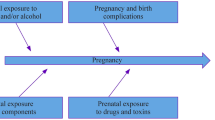Abstract
Methylphenidate (MPH) is an indirect-acting sympathomimetic drug and structurally related to amphetamine. It is widely used to treat children aged 6 years and older, as well as adolescents who have attention-deficit/hyperactivity disorder (ADHD). We report on a 6-year-old boy who presented with typical angina symptoms occurring several hours after intake of an increased dose of MPH, which had been initiated for ADHD treatment 2 days earlier. Despite typical angina symptoms, the diagnosis of myocardial infarction due to spontaneous coronary artery dissection of the right coronary artery was delayed. Most epidemiological studies could not detect an increased risk for cardiovascular events in association with ADHD medications. However, the direct temporal relationship in our case indicates the possibility that MPH may trigger spontaneous coronary artery dissection in predisposed patients. Since myocardial infarction in children is rare but comprises various etiologies, awareness of this possible catastrophic event among medical staff may be lower and may delay immediate life-saving diagnostic and therapeutic measures.



Similar content being viewed by others
References
EMA (2009) Questions and answers on the review of medicines containing methylphenidate. https://www.ema.europa.eu/en/documents/referral/questions-answers-review-medicines-containing-methylphenidate_en.pdf. Accessed: 6 Jan 2020. Doc. Ref. EMEA/658285/2008; London, 22 Jan
Arzneiverordnungs-Report 2019 (2019) Springer-Verlag, Berlin
Faraone SV (2018) The pharmacology of amphetamine and methylphenidate: relevance to the neurobiology of attention-deficit/hyperactivity disorder and other psychiatric comorbidities. Neurosci Biobehav Rev 87:255–270. https://doi.org/10.1016/j.neubiorev.2018.02.001
Novartis Pharma GmbH (2019) Fachinformation “Ritalin® 10 mg Tabletten”. Stand: Oktober
Daly MW, Custer G, McLeay PD (2008) Cardiac arrest with pulseless electrical activity associated with methylphenidate in an adolescent with a normal baseline echocardiogram. Pharmacotherapy 28(11):1408–1412. https://doi.org/10.1592/phco.28.11.1408
Baumeister TB, Wickenbrock I, Perings CA (2016) STEMI secondary to coronary vasospasm: possible adverse event of methylphenidate in a 21-year-old man with ADHD. Drug Saf Case Rep 3(1):10. https://doi.org/10.1007/s40800-016-0035-7
Munk K, Gormsen L, Kim WY, Andersen NH (2015) Cardiac arrest following a myocardial infarction in a child treated with methylphenidate. Case Rep Pediatr 2015:905097. https://doi.org/10.1155/2015/905097
Thompson J, Thompson JR (2010) Acute myocardial infarction related to methylphenidate for adult attention deficit disorder. J Emerg Med 38(1):18–21. https://doi.org/10.1016/j.jemermed.2007.06.021
George AK, Kunwar AR, Awasthi A (2005) Acute myocardial infarction in a young male on methylphenidate, bupropion, and erythromycin. J Child Adolesc Psychopharmacol 15(4):693–695. https://doi.org/10.1089/cap.2005.15.693
Ruwald MH, Ruwald AC, Tonder N (2012) Methylphenidate induced ST elevation acute myocardial infarction. Ugeskr Laeger 174(10):647–648
Hole LD, Schjott J (2014) Myocardial injury in a 41-year-old male treated with methylphenidate: a case report. BMC Res Notes 7:480. https://doi.org/10.1186/1756-0500-7-480
Schelleman H, Bilker WB, Strom BL, Kimmel SE, Newcomb C, Guevara JP, Daniel GW, Cziraky MJ, Hennessy S (2011) Cardiovascular events and death in children exposed and unexposed to ADHD agents. Pediatrics 127(6):1102–1110. https://doi.org/10.1542/peds.2010-3371
Cooper WO, Habel LA, Sox CM, Chan KA, Arbogast PG, Cheetham TC, Murray KT, Quinn VP, Stein CM, Callahan ST, Fireman BH, Fish FA, Kirshner HS, O’Duffy A, Connell FA, Ray WA (2011) ADHD drugs and serious cardiovascular events in children and young adults. N Engl J Med 365(20):1896–1904. https://doi.org/10.1056/NEJMoa1110212
Westover AN, Halm EA (2012) Do prescription stimulants increase the risk of adverse cardiovascular events?: a systematic review. BMC Cardiovasc Disord 12:41. https://doi.org/10.1186/1471-2261-12-41
Shin JY, Roughead EE, Park BJ, Pratt NL (2016) Cardiovascular safety of methylphenidate among children and young people with attention-deficit/hyperactivity disorder (ADHD): nationwide self controlled case series study. BMJ 353:i2550. https://doi.org/10.1136/bmj.i2550
Jackson JW (2016) The cardiovascular safety of methylphenidate. BMJ 353:i2874. https://doi.org/10.1136/bmj.i2874
Franke KB, Wong DTL, Baumann A, Nicholls SJ, Gulati R, Psaltis PJ (2019) Current state-of-play in spontaneous coronary artery dissection. Cardiovasc Diagn Ther 9(3):281–298. https://doi.org/10.21037/cdt.2019.04.03
Saw J, Aymong E, Sedlak T, Buller CE, Starovoytov A, Ricci D, Robinson S, Vuurmans T, Gao M, Humphries K, Mancini GB (2014) Spontaneous coronary artery dissection: association with predisposing arteriopathies and precipitating stressors and cardiovascular outcomes. Circ Cardiovasc Interv 7(5):645–655. https://doi.org/10.1161/CIRCINTERVENTIONS.114.001760
Mahmood MM, Wright RA (2016) Spontaneous coronary artery dissection in a patient on methylphenidate for attention deficit hyperactivity disorder. Int J Cardiol 222:830–831. https://doi.org/10.1016/j.ijcard.2016.07.295
Towbin J, Bricker JT, Carson A, McNamara DG (1987) Myocardial infarction in children. Pediatr Res 21(4):195–195. https://doi.org/10.1203/00006450-198704010-00174
Reich JD, Campbell R (1998) Myocardial infarction in children. Am J Emerg Med 16(3):296–303. https://doi.org/10.1016/s0735-6757(98)90107-3
Roffi M, Patrono C, Collet JP, Mueller C, Valgimigli M, Andreotti F, Bax JJ, Borger MA, Brotons C, Chew DP, Gencer B, Hasenfuss G, Kjeldsen K, Lancellotti P, Landmesser U, Mehilli J, Mukherjee D, Storey RF, Windecker S, Group ESCSD (2016) 2015 ESC guidelines for the management of acute coronary syndromes in patients presenting without persistent ST-segment elevation: task force for the management of acute coronary syndromes in patients presenting without persistent ST-segment elevation of the European Society of Cardiology (ESC). Eur Heart J 37(3):267–315. https://doi.org/10.1093/eurheartj/ehv320
Ibanez B, James S, Agewall S, Antunes MJ, Bucciarelli-Ducci C, Bueno H, Caforio ALP, Crea F, Goudevenos JA, Halvorsen S, Hindricks G, Kastrati A, Lenzen MJ, Prescott E, Roffi M, Valgimigli M, Varenhorst C, Vranckx P, Widimsky P, Group ESCSD (2018) 2017 ESC guidelines for the management of acute myocardial infarction in patients presenting with ST-segment elevation: the task force for the management of acute myocardial infarction in patients presenting with ST-segment elevation of the European Society of Cardiology (ESC). Eur Heart J 39(2):119–177. https://doi.org/10.1093/eurheartj/ehx393
Acknowledgements
The authors would like to thank Siobhan O’Leary for English editing assistance.
Funding
None.
Author information
Authors and Affiliations
Contributions
All authors contributed to the study conception and design. Material preparation, data collection and analysis were performed by TS and GK. The first draft of the manuscript was written by TS and all authors commented on previous versions of the manuscript. All authors read and approved the final manuscript.
Corresponding author
Ethics declarations
Conflict of interest
The authors declare that they have no conflict of interest.
Rights and permissions
About this article
Cite this article
Stammschulte, T., Pitzer, M., Rascher, W. et al. Acute myocardial infarction due to spontaneous coronary artery dissection in a 6-year-old boy with ADHD on the third day of treatment with methylphenidate. Eur Child Adolesc Psychiatry 31, 939–945 (2022). https://doi.org/10.1007/s00787-021-01729-2
Received:
Accepted:
Published:
Issue Date:
DOI: https://doi.org/10.1007/s00787-021-01729-2




